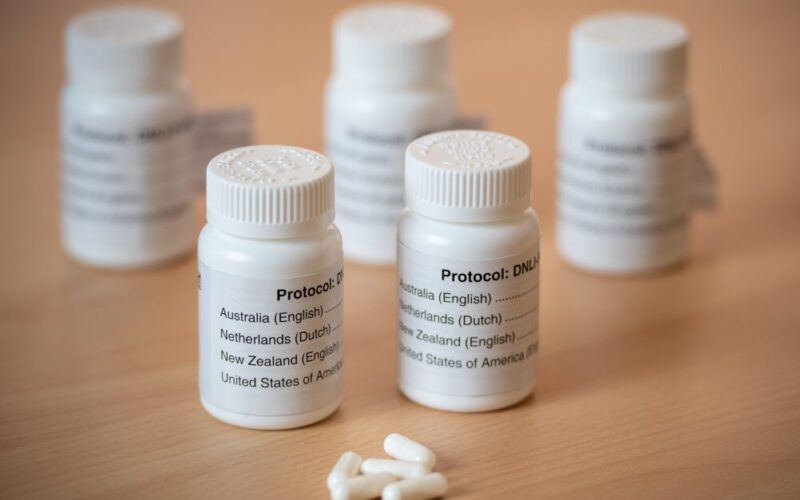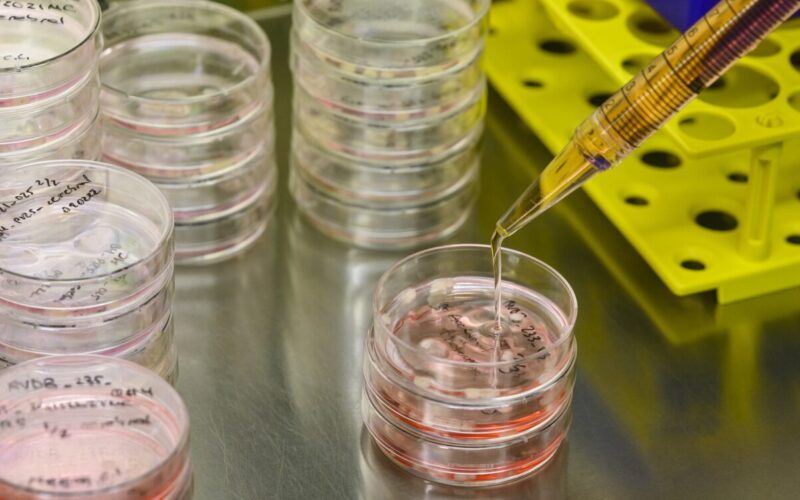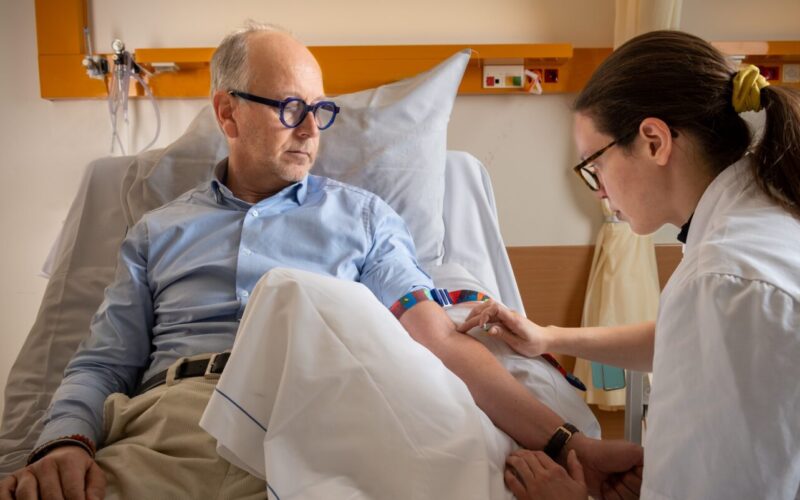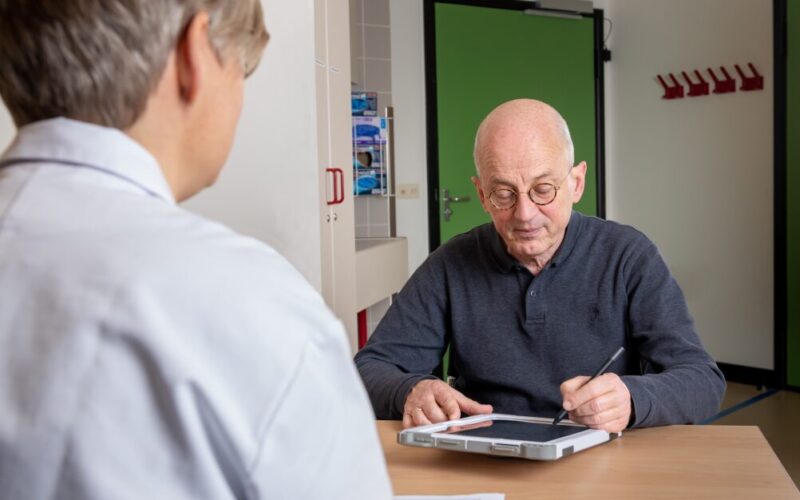
Approximately 90% of all ALS patients in The Netherlands are diagnosed at the ALS Center at UMC Utrecht. We combine forces, knowledge and innovation to approach ALS from all sides.
Approximately 90% of all ALS patients in The Netherlands are diagnosed at the ALS Center at UMC Utrecht. We combine forces, knowledge and innovation to approach ALS from all sides. Our unique collaboration between patients, researchers and healthcare professionals makes our center a pioneer in the fight against ALS.
Our team of leading researchers is dedicated to unraveling the mysteries of this devastating disease with the ultimate goal of making ALS a treatable condition. Discover how our four pillars of research – fundamental research, genetic research, clinical trials, and rehabilitation – combine to make a difference.
Our clinical trials play a pivotal role in evaluating the effectiveness of new drugs and gene therapies. We conduct our ALS drug research through TRICALS, a European consortium focused on accelerating treatment research for ALS, PSMA and PLS – all neuromuscular disorders. By standardizing clinical trials, TRICALS aims to find treatments that can halt or slow ALS progression, thus offering hope for a better quality of life for patients. This initiative not only boosts research efficiency but also significantly increases the chances of patients receiving actual treatments, marking a significant advance in the global effort to combat ALS.
Part 1: Exciting Times in ALS Research: Clinical TrialsThere is still a lot to learn about how ALS makes people sick on a basic, biological level, and also about how the disease progresses. We try to find answers to many of the fundamental questions surrounding the disease in our laboratories. There, we mimic ALS using advanced techniques, such as organoids grown from patients’ own cells and "organ-on-a-chip" models. This allows us to understand the disease at the molecular level and test new drugs at an early stage.
Part 2: Exciting times in ALS research: translational researchAt the UMC Utrecht Brain Center, genetic research aims to understand the mutations that increase the risk of ALS, PSMA, and PLS. By exploring the genetic and environmental factors involved, researchers hope to identify potential treatments. Individuals can contribute to the NMZ Biobank, aiding in the collection of comprehensive genetic data. Key research areas include gene-environment interactions, the genetic differences in identical twins, oligogenetics, and large-scale projects like Project MinE, which uses advanced genomic techniques to uncover genetic causes and inform new treatments.
Read Part 3 Exciting times in ALS research: genetic researchOne of our main goals is to improve life for ALS patients as much as we can, recognizing that we can't yet cure the disease. We're actively working on new ways to make rehabilitation more effective, targeting not just the physical challenges of ALS but also the emotional and social hurdles patients and their loved ones face. Innovations like our "Home Measurement and Coaching app" and the ALS Parents & Kids project are key examples of how we're personalizing care to meet the unique needs of each patient. These efforts are all about providing the best support possible, showing our deep commitment to enhancing the lives of those living with ALS.
Part 4: Exciting times in ALS research: rehabilitation innovations


